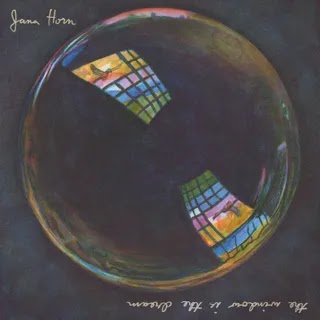Three decades into her career, one of country music’s most reliable and empathetic songwriters offers a profoundly intimate record, full of hushed revelations.
More than three decades into her career as one of country music’s most reliable and empathetic songwriters, Mary Chapin Carpenter can set an identifiable mood with just the sound of her guitar. She favors open tunings on acoustic instruments; chord progressions that never quite resolve but let in enough light to feel at ease. In her lyrics, and even just her song titles, she gestures toward words of comfort and self-affirmation: We’re all right. I have a need for solitude. It’s OK to be sad. The magic of her music is how every texture at her disposal—from her gentle fingerpicking to her smooth and precise singing voice—can communicate these messages just as clearly.
Chapin’s 15th studio album, The Dirt and the Stars, is devoted to this elusive gift, how a quiet sound can summon a world of associations. In fact, there’s an entire song about it. It’s called “Old D-35,” and Chapin dedicates it to John Jennings, the guitarist and producer who worked with Chapin on her 1987 debut Hometown Girl through her commercial breakthroughs in the ’90s. Singing to her old friend, who died from cancer in 2015, Chapin finds a sense of peace in the music he left behind: “As long as there are songs that sound like rain on an old terne roof,” she sings, letting her accompanists finish the thought with a fragile, descending piano line.
With such a careful and attentive sound, it is doubly impressive that Chapin and her band recorded the album entirely live in the studio. It is one of the most intimate records in her catalog, and the entire band seems locked into the introspective intensity that marks her best songwriting. In the opening “Farther Along and Further In,” they join slowly with pedal steel and mandolin and a lapping drumbeat. When they lock into a groove near the end of the song, Chapin lets out a sudden, whispered exclamation. It is less the sound of a bandleader losing herself to the music than the lightbulb flash of a good idea arriving late at night, when no one else is awake.
The lyrics are populated with these kinds of hushed revelations. “There’s no day that’s useless,” Chapin notes in “It’s OK to Be Sad.” As if putting her own advice to use, she spends these songs singing about hard wisdom and dark spirals, looking for patterns in the ways people fall apart: “All broken hearts breaks differently,” she reminds us. There are two explicitly political songs: “American Stooge,” a tragicomic character study, and “Secret Keepers,” a heartland rocker about women forced to keep their stories of abuse to themselves. Set to one of the album’s most upbeat arrangements, the dissonance is intentional, the sound of private thoughts surfacing among people who understand.
Chapin has a gift for finding universal wisdom in these deeply personal struggles, and these songs strive for clarity in the face of darkness. In the closing “Between the Dirt and the Stars,” one of her most vivid and beautiful songs to date, Chapin allows herself refuge in scenic memories from a teenage road trip. “If we’re lucky, ghosts and prayers are company, not enemies,” she sings. Her band sprawls into a lengthy instrumental coda with a climactic guitar solo by Duke Levine, suggesting a kind of spiritual catharsis. But Chapin’s thoughts keep turning to an old song playing on the car radio, somewhere deep in her psyche. “Everything we’ll ever know,” she sings, “is in the choruses.” And so she keeps listening, learning, driving on.
















0 comments:
Post a Comment